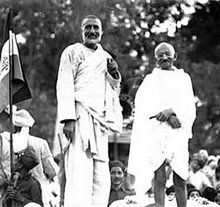Sunday, January 26, 2014
Prophetic Sumud
O Jerusalem, Jerusalem, thou that killest the prophets, and stonest them which are sent unto thee, how often would I have gathered thy children together, even as a hen gathereth her chickens under her wings, and ye would not!
--St. Matthew 23:37.
Friday, January 24, 2014
Sunday, January 19, 2014
Kazakhstan
I've been hearing for years now about how the Soviets destroyed Central Asia and that, since the collapse of the USSR, things have gone downhill from there. I don't doubt that there is some truth to these allegations--maybe a lot of truth--but the region still holds many treasures.
The few human beings who still inhabit this troubled planet must repudiate both the Cold War mentality and its successor, the "War On/Of Terror" mentality, and reclaim it.
Friday, January 17, 2014
Wednesday, January 15, 2014
Tuesday, January 14, 2014
Sunday, January 5, 2014
The Worm in the Apple of the Zionist Project
In the mid-1980's, an Israeli journalist by the name of Yoram Binur took an assignment in which he posed for six months as a Palestinian laborer in Jerusalem and Tel Aviv. A committed Zionist, he suddenly found himself on the receiving end of the bigoted cruelties with which his fellow Israelis routinely treat Palestinians. The following reflections on sumud are excerpted from his essay, "Palestinian Like Me."
"Before one can speak of the intifada, as the Palestinians call the current uprising, one must first understand how the Palestinians have coped with life under the Israeli occupation up to this point. The key concept in this respect is sumud, which means "sticking with it," "staying put," "holding fast" to one's objectives and to the land--in a word, survival. Sumud is an attitude, a philosophy, and a way of life. It maintains that one must carry on in a normal and undisturbed fashion, as much as possible. Compared with organized civil disobedience, or passive resistance as preached by Gandhi, sumud is a more basic form of resistance growing out of the idea that merely to exist, to survive, and to remain on one's land is an act of defiance--especially when deportation is the one thing Palestinians fear most.
Although sumud is essentially passive by nature, it has a more active aspect, consisting of gestures that underscore the difference between surviving under difficult conditions and accepting them..."
Binur recounted conversations he had with Palestinian workers who described for him the subtle means by which they attempted to undermine the productivity of their occupiers: the very "weapons of the weak" that Jim Scott has chronicled in his scholarship and that are described in slave histories of the antebellum American south.
Those who undertake occupation and a position of dominance over other human beings--on whatever basis (be it racial, religious, ideological or statist)--can only succeed (short of mass deportations and/or extermination) if the occupied and dominated accept their assigned roles, i.e., adopt a stance that Etienne de la Boetie (d. 1563) rightly named "the politics of obedience" and the "discourse of voluntary servitude." To do so, however, is to accept de-humanization. Some human beings can be counted upon to do so, but many cannot. But even if the many could be depended upon for such compliance, the occupiers and dominant ought to consider the effect upon themselves and upon the society they wish to create of reducing others in their midst to such a condition.
This is the worm in the apple of the Zionist project--planted, as it is, in the Palestinian olive grove.
Saturday, January 4, 2014
Sumud Observed and Theorized
Yale anthropologist Jim Scott has dedicated his career to studying the practice of sumud across cultures and political systems around the world.
Sumud is the politics of the powerless. It involves nothing more (or less) than the principled assertion of one's integrity via non-violent non-cooperation with oppression.
Thursday, January 2, 2014
Subscribe to:
Comments (Atom)










